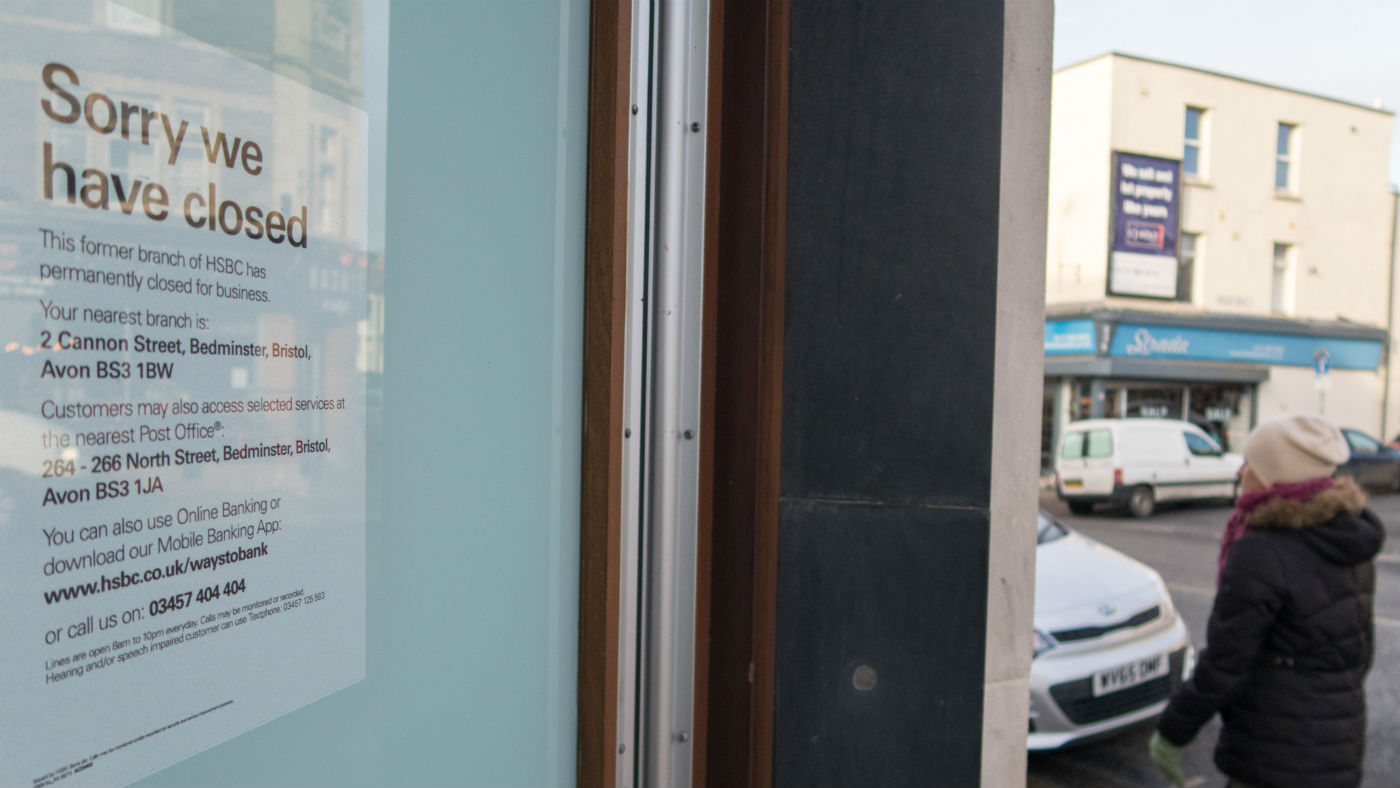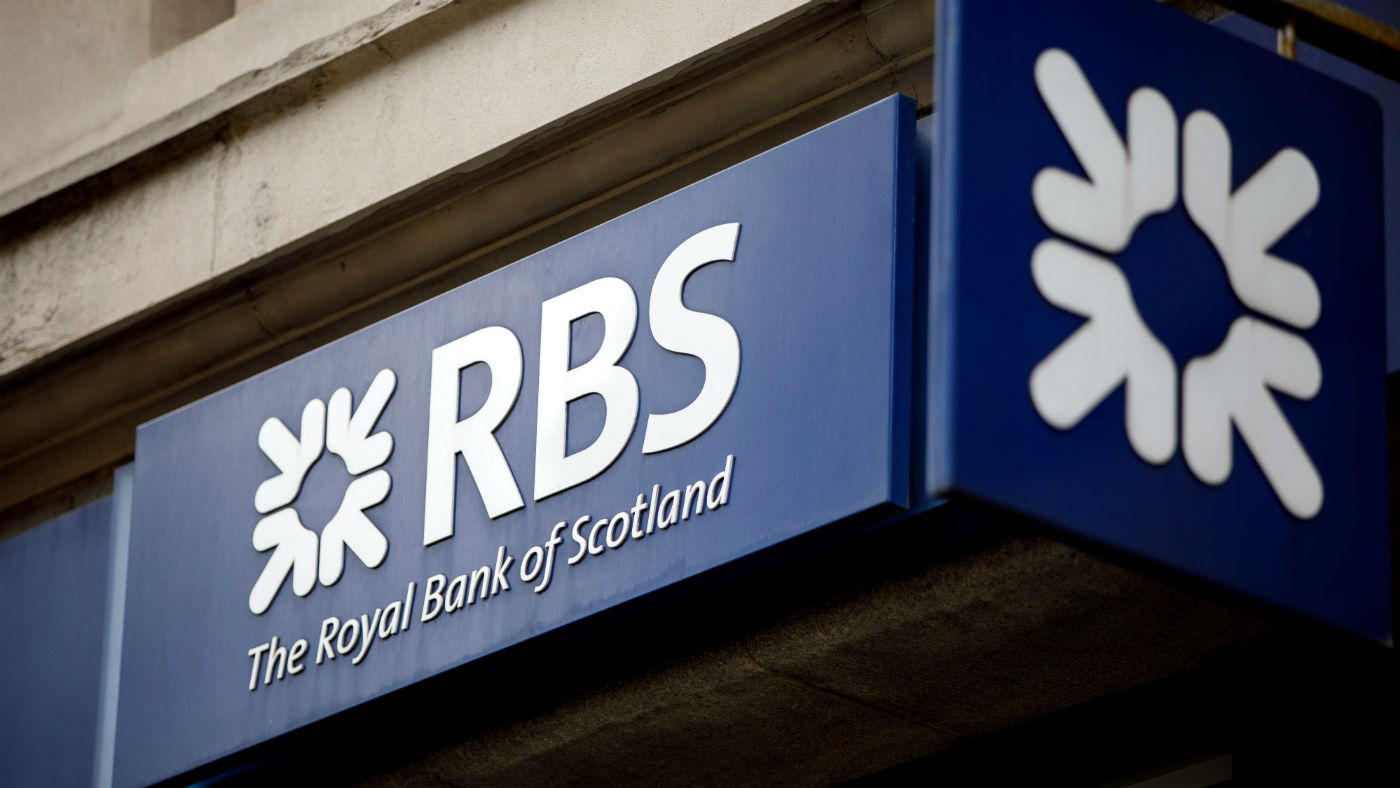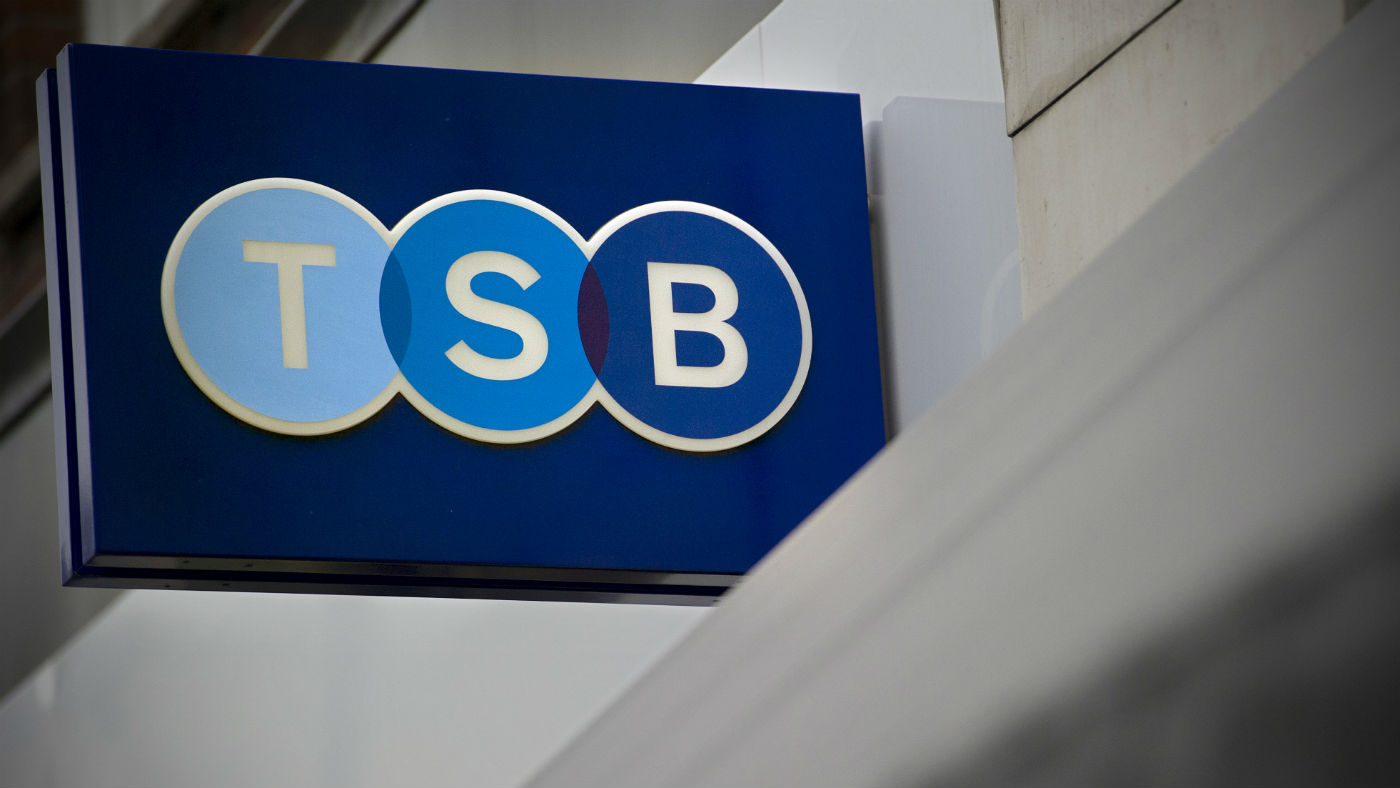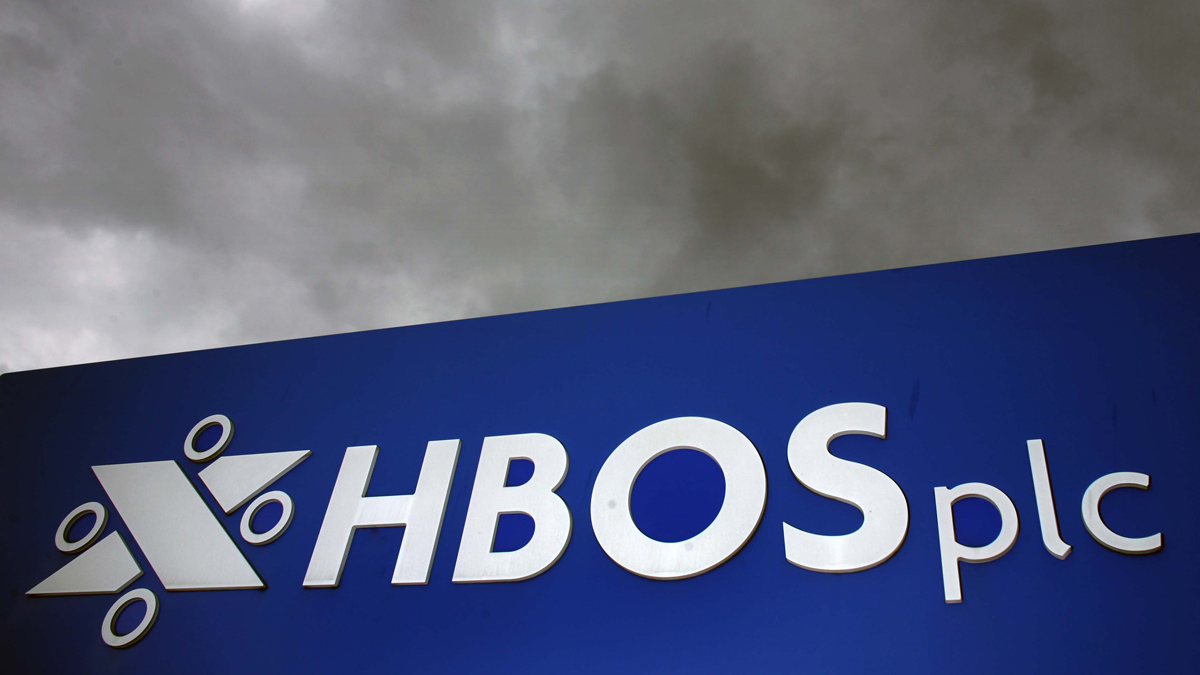Lloyds' boom-era bosses sue bank for bonuses
Eric Daniels and Truett Tate claim they should have received a full payout in 2012

A free daily email with the biggest news stories of the day – and the best features from TheWeek.com
You are now subscribed
Your newsletter sign-up was successful
Lloyds to reveal another PPI hit of up to £1.5bn
24 October
Lloyds will lead a group of the UK's biggest banks in announcing its third quarter results this week, amid predictions it could confirm another hit of £1.5bn over payment protection insurance.
The bank publishes its trading update on Wednesday and analysts at Citi are expecting the hefty additional provision, which would take its total compensation costs to around £17.5bn, says The Scotsman.
The Week
Escape your echo chamber. Get the facts behind the news, plus analysis from multiple perspectives.

Sign up for The Week's Free Newsletters
From our morning news briefing to a weekly Good News Newsletter, get the best of The Week delivered directly to your inbox.
From our morning news briefing to a weekly Good News Newsletter, get the best of The Week delivered directly to your inbox.
Investec estimates the bank will have to set aside another £1bn, while Swiss bank UBS is forecasting a more modest blow of £800m.
Banks have paid a collective total of £30bn so far in what amounts to the industry's biggest ever mis-selling scandal. The banks' failures relate to the insurance policies on loans that were routinely added to customers' bills without their knowledge.
In August the financial regulator, the Financial Conduct Authority, gave in to demands from the industry for a final deadline for compensation claims. But it set the cut-off one year later than expected, in June 2019.
Paying out redress for one more year will up the amount banks have to set aside and this week's results are the first time the new costs will be reflected in financial statements.
A free daily email with the biggest news stories of the day – and the best features from TheWeek.com
Barclays and Royal Bank of Scotland also announce their results this week. The two banks are likely to have to increase their provision, although their failures were less significant than those of Lloyds.
That is not the only new cost that is expected to be confirmed this week. The Scotsman says there are also likely to be bigger pension deficits announced as a result of falling gilt yields that pension scheme trustees use to provide long-term returns.
This month Tesco announced its pension scheme deficit had doubled to £5.6bn. Some analysts reckon a similar hit for the likes of Lloyds could strike future dividends, although this would not become apparent until full-year results early next year.
The Guardian says "analysts are also braced for admissions that the Brexit vote and the cut to interest rates could dent future profits" at banks.
Again, it's probably too soon for this to be reflected in financial statements so investors will be looking for clues in forward-looking statements and commentary from bank bosses.
Government scraps Lloyds retail share offer
7 October
The government has abandoned plans to allow ordinary investors the chance to buy £2bn worth of discounted shares in Lloyds Banking Group.
In a statement released today, the Treasury confirmed it has scrapped the planned retail share offer, which was due to take place before the end of March 2017, after being delayed for more than a year due to market volatility.
Retail investors were to be offered a five per cent discount on the prevailing share price, with priority given to small investors buying less than £1,000 worth of shares.
Former chancellor George Osborne said the offer would help foster a "share-owning democracy" in the UK and analysts predicted interest on a par with the big privatisations of the 1980s.
As many as 120,000 people registered their interest with broker Hargreaves Lansdown in just four days.
However, shares in Lloyds have tanked this year and are currently languishing at 52p, well below the 2008 bailout price of 73.6p.
This won't stop the government making back its money on the original investment. It has already received £17bn from earlier share sales to institutional investors at much higher prices, dividends and fees.
Hargreaves estimated in August it could sell its remaining nine per cent stake at just 7.5p per share and still break-even.
But given the fact shares in fellow state-owned bank Royal Bank of Scotland (RBS) are almost two-thirds down on their bailout break-even price, the government had faced criticism it was prioritising a financial incentive to certain voters over its obligation to get the best return on taxpayers' money.
Chancellor Philip Hammond said: "Returning Lloyds to the private sector is in the interests of the bank, taxpayers and the country as a whole. That is why exiting our stake in Lloyds… at the best possible price is one of my top priorities.
"I have listened to the experts. Ongoing market volatility means it is not the right time for a retail offer."
Hammond said it was "not practical" at this stage to talk about selling the taxpayer share in RBS, adds the BBC, as the bank is still facing the threat of a massive fine in the US.
Lloyds clears chief executive over expenses allegations
11 August
Lloyds Banking Group has cleared its chief executive of violating its expenses policy and told its 75,000 staff he has "no case to answer".
The Daily Telegraph says Antonio Horta-Osorio was "probed by his own bank" over claims he racked up a hotel bill of £4,000 in June during a six-night stay in Singapore, where he was due to speak at a global banking conference.
The allegations were first made in The Sun, which focused on the "trysts" the chief executive was said to have enjoyed during the trip with "secret mistress" Wendy Piatt, a former adviser to Tony Blair. Horta-Osorio has been married to wife Ana for 25 years.
The newspaper obtained a copy of a hotel bill that included £300 in spa treatments and £450 on room service.
Horta-Osorio was photographed taking a boat trip with Piatt, the director general of the Russell Group, who was in Singapore for meetings with officials and university leaders, and there were reports of the two at dinner. In addition, Piatt was seen spending time in his suite at the Mandarin Oriental, where she was also staying.
The Sun said the claims had left the banker, who it said has been keen to portray himself as "whiter-than-white" and a "family man", "clinging to his reputation".
However, in a memo to staff, Lloyds said an internal investigation had cleared Horta-Osorio of claiming business expenses for personal expenditure.
It added he would have personally paid for the cost of the stay and then reclaimed only the "legitimate" business expenses from the bank.
In a statement to the Sun, Lloyds said that "more broadly", the apparent expose was a "personal matter" for Horta-Osorio.
As well as being embarrassing for a boss who instigated a new conduct policy in 2013 demanding that staff "lead by example", the expenses claims are sensitive at a time when Lloyds is culling jobs and closing branches to slash its cost base.
Last month, the state-backed bank confirmed it will cut 3,000 more jobs and 200 extra branches, on top of the 9,000 roles and 400 branches it previously announced it would cut by the end of next year.
Lloyds faces £300m legal claim over pension 'discrimination'
9 August
Lloyds is facing a legal claim for £300m to correct an alleged "discrimination" in its pension scheme affecting 100,000 women who are or were employed at the bank.
Lloyds Trade Union (LTU), which has 30,000 members but was de-recognised by the bank last year, says the issue relates to unequal payments to women with so-called "guaranteed minimum pensions", which its legal advice has concluded amounts to "discriminatory" pay.
Guaranteed minimum pensions were created in the 1970s and abolished in 1997, the Financial Times says. Workers could opt out of the "second state pension", a top-up to the basic pension for those who paid national insurance for a certain number of years, and instead enrol in a workplace scheme, while employers could cut their own national insurance contributions by guaranteeing a minimum payout.
Women were often guaranteed a lower rate as at the time, they were able to retire aged 60, five years earlier than men, and would be taking pension payouts for longer.
However, the European Court of Justice later concluded that workplace pensions are effectively another form of pay and so must be equal between the sexes. Since then, the issue has been in dispute.
The coalition government in 2012 issued a consultation proposing that all schemes should equalise guaranteed minimum pension rates, but never followed up with a final decision.
The FT says if confirmed the decision would cost wider industry £13bn, while LTU told The Guardian the figure could be closer to £20bn and that it affects as many as 148,000 women. At Lloyds, it hits around 100,000 women and could cost the bank £300m, plus legal costs.
LTU said: "This is discriminatory on the grounds of sex or, put another way, women receive less pay for doing the same work."
Malcolm McLean, of pension consultants Barnett Waddingham, called the problem a "festering sore across the pensions industry ".
Lloyds retail share sale could be scrapped after Brexit turmoil
8 August
A discounted retail share offer of Lloyds Banking Group shares is set to be scrapped, claims The Times.
The paper says Chancellor Philip Hammond is "almost certain" to abandon the £2bn deal, which offered buyers a five per cent discount on the prevailing market price, because of the cost to the Treasury in the wake of the "market uncertainty caused by Brexit".
Former chancellor George Osborne announced the offer last October, branding it the "biggest privatisation in 20 years" and saying it would herald the emergence of a "share-owning democracy". It garnered the interest of hundreds of thousands of ordinary investors.
At the time, Lloyds was trading above the price at which the government bought in at the height of the financial crisis and a "drip-feed" sale of shares to large investors was producing a positive return.
However, fears the global economy was heading for another crash saw the banking sector plunge at the end of last year, causing the government to slam on the brakes on the scheme. The Treasury still owns a nine per cent stake in Lloyds.
Brexit has made the situation worse. While wider markets have rebounded from an initial hit and surpassed their pre-referendum peak, bank shares have slumped on fears profit margins will be eroded in a low-interest rate environment.
Lloyds is now trading at just 54p per share, 25 per cent below its pre-referendum level and even more below the 73.6p bailout break-even price.
The Times says that having returned more than £16bn to the government in share sales, dividends and fees, Lloyds' shares could be sold at around their current level and the taxpayer would still recoup all of the original £20bn investment.
But bumper returns from the bank have been essential to the government claiming an overall positive return on banking sector bailouts and so providing cover to return fellow state-backed Royal Bank of Scotland to the private sector at a loss.
In the wake of the likely hit to public finances following the vote for Brexit, Hammond is also unlikely to want to sell at a price that would blow a hole in fiscal forecasts based on a much more lucrative sale.
However, The Times says that scrapping the sale puts the government "on a collision course with private investors".
Laith Khalaf of Hargreaves Lansdown, which has signed up 350,000 prospective clients on the back of the looming Lloyds offer, said many would see it as a "broken promise".
-
 Tourangelle-style pork with prunes recipe
Tourangelle-style pork with prunes recipeThe Week Recommends This traditional, rustic dish is a French classic
-
 The Epstein files: glimpses of a deeply disturbing world
The Epstein files: glimpses of a deeply disturbing worldIn the Spotlight Trove of released documents paint a picture of depravity and privilege in which men hold the cards, and women are powerless or peripheral
-
 Jeff Bezos: cutting the legs off The Washington Post
Jeff Bezos: cutting the legs off The Washington PostIn the Spotlight A stalwart of American journalism is a shadow of itself after swingeing cuts by its billionaire owner
-
 Could ‘banking hubs’ solve problem of branch closures?
Could ‘banking hubs’ solve problem of branch closures?Speed Read MPs fear large sections of society could face ‘financial exclusion’
-
 RBS to cut 162 branches and 792 jobs
RBS to cut 162 branches and 792 jobsSpeed Read Move comes days after taxpayer-owned bank announced 206% rise in profits
-
 TSB crisis enters fourth day
TSB crisis enters fourth daySpeed Read Bank boss ‘sorry’ for IT chaos that has left customers unable to access accounts or make payments
-
 Lloyds shareholders in £350m claim win disclosure battle
Lloyds shareholders in £350m claim win disclosure battleIn Depth Judge rejects bank's argument that advice ahead of ill-fated takeover of Hbos is privileged